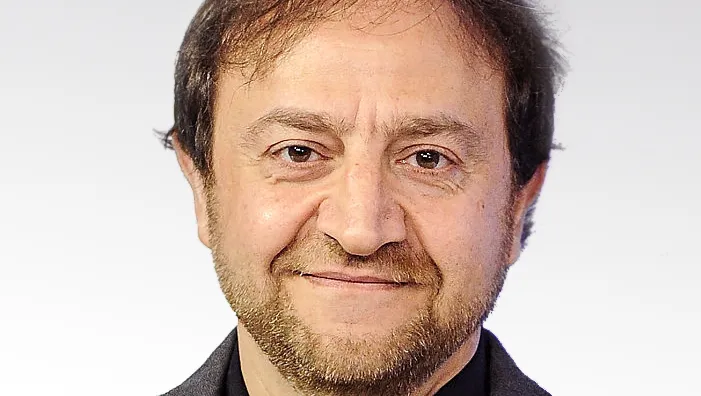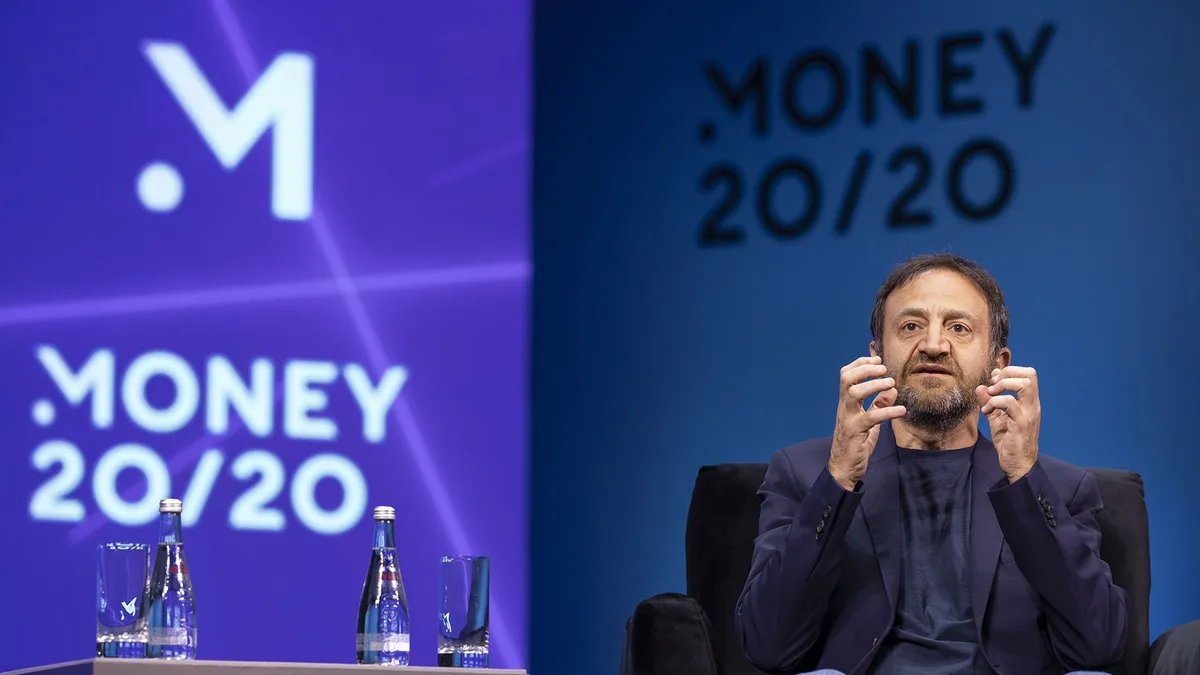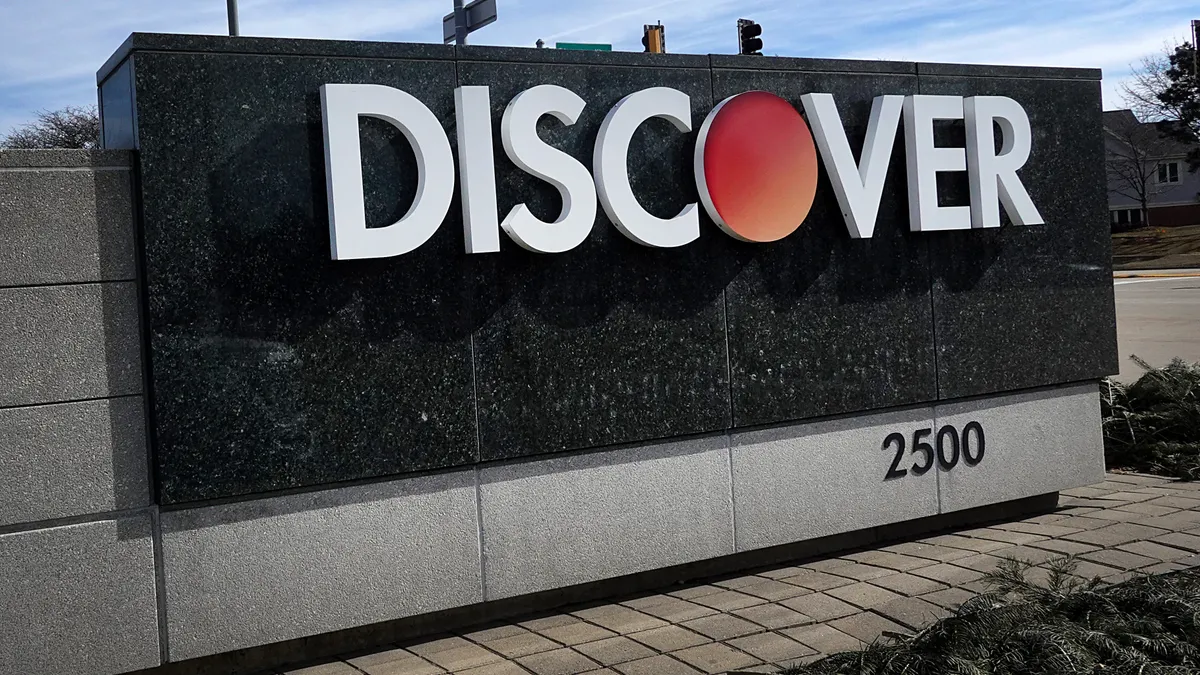As a teen, Simon Khalaf toggled between two very different realities: summers in Santa Monica, California, and civil war in Lebanon.
Spending time in both Beirut and America during that formative period gave the Marqeta CEO a sense of how to survive amid years of massacres and bombings, and to appreciate opportunities taken for granted by the California buddies he’d pass time with near the beach.
Khalaf, 56, has chased possibilities throughout his career: During his more than three decades in the tech industry, he’s started multiple companies and occupied the CEO role five times.
Friends and former coworkers describe him as a fidgeter, having boundless and, at times, exhausting energy levels. His fast-paced mind is constantly making connections and he doesn’t sugar-coat things. “There’s a lot going through his brain at any given moment,” said Jarah Euston, CEO and co-founder of WorkWhile, who reported to Khalaf when he was CEO of mobile app analytics company Flurry.
Khalaf himself learned from working for high-profile CEOs, including former Google CEO Eric Schmidt and former Yahoo CEO Marissa Mayer, at tech companies Yahoo, Novell and Twilio.
Now, he’s mapping out opportunities at the helm of Oakland, California-based Marqeta. The card issuing fintech aims to tap the large embedded finance market to fuel its next phase of growth.
“Joining Marqeta at this stage is all about building what I call the ‘scale discipline,’” said Khalaf, who resides in San Francisco. He’s focused on implementing repeatable processes “that don’t rely on the hero culture.”
Marqeta, which has a market cap of about $3.3 billion, has yet to post a profit. It has relied heavily on one customer, Block; that digital payments company is responsible for about 45% of Marqeta’s gross profit, according to a November note from William Blair analysts. As Marqeta seeks to grow, customer concentration and competition present risks, analysts said.
The company expects to report net income by the fourth quarter of 2026, Marqeta executives told investors in November. For the first nine months of this year, Marqeta’s net revenue edged up 2%, to $557.3 million, and its loss widened, to $182.6 million.
Having renewed all of its business with Block in recent months, Marqeta is “at a key inflection point here, to grow and scale the company,” said Bryan Keane, a Deutsche Bank analyst who covers Marqeta. Now, it’s all about execution, and Khalaf is a key part of that, he said.
‘Don’t take anything for granted’
Khalaf was born in Beirut to a French-Lebanese mother and an American father, and spent time in all of those locales while growing up. California summers in the ‘70s and ‘80s stood in stark contrast to the civil war in Lebanon, where Christians and Muslims were engaged in armed conflict as Khalaf came of age.
“Being in a war, you actually appreciate life,” he said. “You’re grateful every day that you’re still alive.” On the other side of the world, his teen peers in Santa Monica worried about “how cool the car is” and “hanging out on the promenade,” he said.
Those distinct experiences fostered in Khalaf an appreciation for what the U.S. offers its citizens. The sense of stability and opportunity in America wasn’t lost on him and his three siblings. “What my parents have given me is an ability to appreciate what has been given to us; a sense of, don’t take anything for granted,” he said.
After getting an undergraduate degree from American University of Beirut, Khalaf moved to the U.S. in 1989 to attend Syracuse University. A fascination with technology led him to earn a master’s degree in computer engineering. After a short stint in consulting, Khalaf started his own company, Worldtalk, with a few colleagues in 1992, beginning his entrepreneurial streak.
Repeatable processes
As the internet spooled up in the 1990s and streaming and mobile devices advanced in the early aughts, Khalaf sought to predict tech trends and latch onto them.
Worldtalk, which he co-founded, capitalized on email as a business communication tool, rather than just a social avenue, in the early 1990s. Flurry, where he was CEO from 2008 to 2014, jumped on mobile app analytics as smartphones began to proliferate.
JustOn, a cloud-based file-sharing company he co-founded in 1999 and was CEO of, was purchased by Novell in 2000; the purchase price wasn’t disclosed and Khalaf declined to comment.
In the 2000s, he also held the chief executive post at two other companies: first, at content networking platform Volera, which was launched in 2001 as a joint venture among Novell, Nortel Networks Corp. and Accenture. It was also acquired by Novell a few years later. Then, he was CEO at security equipment company Vernier Networks, which folded after Khalaf left the company in 2007, during the Great Recession.
Flurry was acquired by Yahoo in 2014 for $270 million, according to Yahoo’s 2014 filing with the Securities and Exchange Commission. VentureBeat reported that year that the acquisition was a lifesaver for Flurry, which was running out of money and losing staffers. Khalaf declined to comment on that report through a spokesperson.
From his collective experiences, Khalaf said he’s learned “the hard way” that growth has to come with profitability and with repeatable processes.
“I’ve witnessed hyperscale multiple times,” Khalaf said. “Companies make mistakes – I call it the oops moment – [when] they become bigger, but they don’t become better.”
After growing rapidly, Marqeta cut about 15% of its nearly 1,000-person workforce this year in pursuit of profitability.
Those who’ve worked closely with him describe Khalaf as an out-of-the-box thinker with contagious enthusiasm, but also someone who’s data-driven and product-focused.
“You have to have a strong personality with him,” said Simonetta Turek, chief product officer at Medallia, who worked with Khalaf at Twilio. It’s “about controlling his energy, and being able to say, ‘Wait, wait, time out, you’re missing a few data points.’” Khalaf takes that in stride, she said. “It’s very much what he expects,” she added.
Being a visionary leader whose mind makes quick connections is a benefit, but the other side of that coin is “the stereotypical, ‘Oh, the crazy new idea from the CEO,’” observed Euston, who was the vice president of analytics and marketing at Flurry while Khalaf was CEO. “I think Simon is aware of that and puts really strong operators around himself.”
Taking the helm at Marqeta
Khalaf joined Marqeta as chief product officer in mid-2022. He hit it off with company founder and then-CEO Jason Gardner and was quickly seen as the right fit for Marqeta’s next CEO. Khalaf took on that role in January.

Khalaf “cares deeply about operations and metrics of actually running a business,” Gardner said, pointing to Khalaf’s strengths in operating public companies on a day-to-day basis. “What investors want today is the strong suit that Simon has.”
Turek believes Khalaf took the chief product officer role at Marqeta because he saw a path to CEO. “It was very clear that he saw that there was an untapped market opportunity” Marqeta could pursue, she said.
In the workplace, Khalaf is an open person who shares his family’s happenings – Khalaf and his wife, Jihane, have a teen daughter and younger twin sons – and that’s helped him foster strong professional bonds, Euston said.
Khalaf has also been known to mention his grove of 250-year-old Spanish olive trees at his second home in St. Helena, California. Khalaf enjoys cooking and the experimentation it offers, often turning to Mediterranean dishes. “It’s a cuisine that is 2,000 years old,” he said, “so all the kinks are out.”
Challenges ahead
Jack Dorsey’s Block is Marqeta’s biggest customer, and although Marqeta has reduced its reliance on Block, it’s still outsized.
In the second quarter, 78% of Marqeta’s net revenue came from Block. In the third quarter, that figure dropped to 50%, according to the company’s latest quarterly filing with the SEC.
Before Marqeta renewed its business contracts with Block in recent months, analysts were concerned about whether it would cement those ties. Marqeta powers Block’s Cash App and Square cards, among other services. Khalaf defended the reliance Marqeta has had on Block since the former was founded in 2010. “It’s not uncommon for a hyper-growth company to have a dominant customer,” he said.
By vertical, about half of Marqeta’s revenue is generated from financial services, largely led by Block; 15% to 20% from buy now, pay later clients; 10% to 15% from on-demand delivery companies; and 10% of revenues from expense management customers, William Blair analysts estimated in a Nov. 13 note to investment clients.
Investors showed their discontent with Marqeta well before Khalaf’s arrival. The company’s stock price took a turn for the worse in November 2021, after its June initial public offering, and has tanked about 80% since then.
“I think investors are taking a wait-and-see attitude, because it is very hard to see the progress the company is making,” said Khalaf, noting “a lot of uncertainty around Block.”
Khalaf said he believes that Marqeta will broaden its customer base in the next two years as it expands into other business areas.
Efforts to expand
He pointed to expense management and accelerated wage access as growing areas of opportunity for Marqeta. In the past year, as Khalaf has focused on embedded finance, such deals have accounted for 35% of bookings, according to William Blair analysts.
Also, Marqeta’s move in October to add a credit card issuing platform is a “game-changer” for the company, Khalaf said. “You become more credible – especially in embedded finance, in which people want a one-stop shop – on both commercial and consumer.” “Before credit, Marqeta was half of a solution,” he said.
In reaching beyond fintech clients, Marqeta pivoted to larger customers, Keane said. Those bookings have risen, but it takes 12 to 18 months for revenue and gross profit from them to increase, he noted. The company counts Walmart-backed fintech One and Uber among its clients.
Khalaf is focused on executing the targets laid out during the company’s Nov. 9 investor day, including its profitability goal. “There’s one thing you can do, and nothing else: Tell them what we’re doing, and do exactly what we communicated,” he said. Former colleagues noted Khalaf’s confidence in seeing the bigger picture and exhibiting patience.
Marqeta’s bookings are up nearly 60% this year, Keane said. As other pieces of the business grow, the percentage of gross profit coming from Block should decrease, he said.
Still, Marqeta faces no shortage of competitive threats from fintechs large and small, Keane noted. Digital payments companies Adyen and Stripe have taken note of the high growth rates in modern issuing and are trying to make their mark in that arena, he said.
And in a questionable economic environment, Marqeta also risks clients delaying implementations. “Nobody’s going to be immune to economic impact,” Keane said.



















